Top Fish in the State of Washington
Rainbow Trout
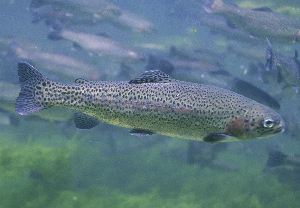 This is one of the most popular fish in Washington. Though the fish is native to the Western United States, it is found in many fresh water bodies in the state of Washington. Rainbow trout stay in cool and clean waters. The fish is recognized by its red or pink stride on its sides. The strides cover the area from the gills to the tails.
This is one of the most popular fish in Washington. Though the fish is native to the Western United States, it is found in many fresh water bodies in the state of Washington. Rainbow trout stay in cool and clean waters. The fish is recognized by its red or pink stride on its sides. The strides cover the area from the gills to the tails.
The fish’s natural diet consists of planktons, smaller fish, insects and other invertebrates. The most popular baits for luring rainbow trout are worms, salmon eggs, cheese, marshmallows and insects. The cost of rainbow trout is $8.99 a pound.
Cutthroat Trout
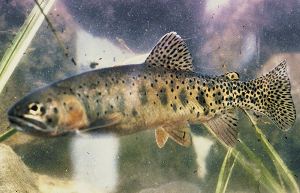 The most common type of cutthroat trout is the coastal cutthroat. This fish comes in two varieties – resident and sea-run strains. Resident coastal cutthroat trout are usually about 8-9 inches in size.
The most common type of cutthroat trout is the coastal cutthroat. This fish comes in two varieties – resident and sea-run strains. Resident coastal cutthroat trout are usually about 8-9 inches in size.
Sea run coastal cutthroat are mostly found in Puget Sound and river tributaries in Lower Columbia. Though this type of trout still thrives in coastal river streams, its population is dwindling in many small streams across Washington. Cutthroat trout cost $9 a pound.
Bait for cutthroat trout include spinners and streamer flies. The bait should be cast near brushes, stumps, roots and other woody covers. WDFW also supplements the supply of cutthroats by stocking streams and rivers. The fish can be caught using all standard lures and baits. However, their diet mainly consists of insects. Therefore fly fishing is an effective means of catching the cutthroats.
Whitefish
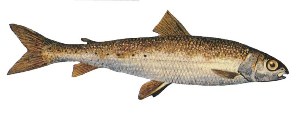 This fish species is native to Washington and related to trout and salmons. They are found in many east and Westside streams. The fish has an average size of 10-13 inches. Mountain whitefish can be caught using stonefly nymphs, grubs, flies and other artificial baits at the bottom of deep pools during winter. There are two types of Whitefish: Mountain and Lake Whitefish. The latter is an introduced species and has a bigger mouth than the former. Whitefish goes for about $23.95 per lb.
This fish species is native to Washington and related to trout and salmons. They are found in many east and Westside streams. The fish has an average size of 10-13 inches. Mountain whitefish can be caught using stonefly nymphs, grubs, flies and other artificial baits at the bottom of deep pools during winter. There are two types of Whitefish: Mountain and Lake Whitefish. The latter is an introduced species and has a bigger mouth than the former. Whitefish goes for about $23.95 per lb.
Largemouth Bass
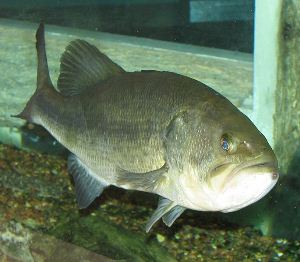 This is one of the most consumed fish species in Washington. Its popularity extends to other states throughout the US. This fish species was introduced to Washington in the 1800s. It mostly comes from waters in Washington such as Eloika Lake, Potholes Reservoir, Moses Lakes and Silver Lake among others.
This is one of the most consumed fish species in Washington. Its popularity extends to other states throughout the US. This fish species was introduced to Washington in the 1800s. It mostly comes from waters in Washington such as Eloika Lake, Potholes Reservoir, Moses Lakes and Silver Lake among others.
Largemouths can be caught using various types of bait such as plastic baits, spinner baits and diving plugs among others. They are particularly fond of lily pads, underwater stumps, weed beds and other foods. Largemouth bass costs $5/lb.
Salmon
 This fish species spends part of its life in salt water and part in fresh water. Adult salmons die once they complete their spawning runs. Salmon is a popular delicacy for many people. There are different types of salmons including Chinook salmon, Coho Salmon, Pink Salmon and others. People can buy salmon at $4.22 per lb.
This fish species spends part of its life in salt water and part in fresh water. Adult salmons die once they complete their spawning runs. Salmon is a popular delicacy for many people. There are different types of salmons including Chinook salmon, Coho Salmon, Pink Salmon and others. People can buy salmon at $4.22 per lb.
Crappies
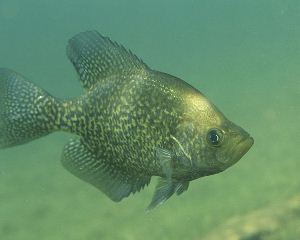 This is one pretty and equally tasty fish. It is an introduced fish species found in warm waters. There are two types of crappies-black and white. However, black crappies are more common than the white variety. They like staying in places with submerged trees, lily pads and other aquatic vegetation. In spring, crappies are found in schools in many warm water streams. However, during summer, they migrate to deeper waters. They can be lured using artificial flies and small fish. Crappies are sold at $15 a pound.
This is one pretty and equally tasty fish. It is an introduced fish species found in warm waters. There are two types of crappies-black and white. However, black crappies are more common than the white variety. They like staying in places with submerged trees, lily pads and other aquatic vegetation. In spring, crappies are found in schools in many warm water streams. However, during summer, they migrate to deeper waters. They can be lured using artificial flies and small fish. Crappies are sold at $15 a pound.
Yellow Perch
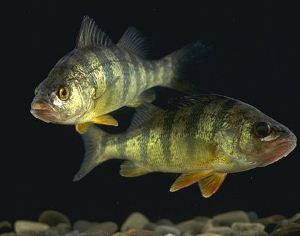 This fish species was introduced to various water bodies in Washington in the 1890s. They are quite tasty and can be served cleaned, skinned or filleted. Many year round lakes and reservoirs in Washington abound with Yellow Perch. Fishermen use worms and grubs as bait to catch yellow perch. This fish goes at $3.20/lb.
This fish species was introduced to various water bodies in Washington in the 1890s. They are quite tasty and can be served cleaned, skinned or filleted. Many year round lakes and reservoirs in Washington abound with Yellow Perch. Fishermen use worms and grubs as bait to catch yellow perch. This fish goes at $3.20/lb.
Would you like to receive similar articles by email?





